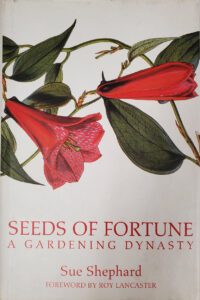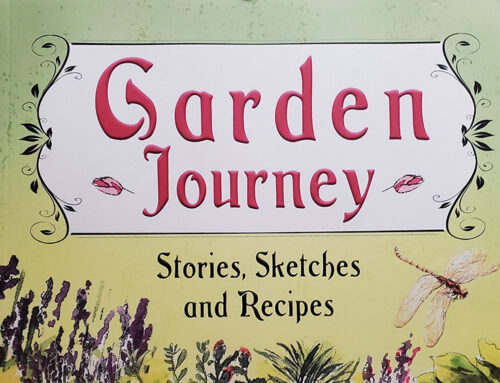Book Review: Seeds of Fortune: A Gardening Dynasty
Reviewed by Brett Kerley
 Shephard, Sue. Seeds of Fortune: A Gardening Dynasty. Bloomsbury Publishing, 2003. ISBN-13: 9780747561032
Shephard, Sue. Seeds of Fortune: A Gardening Dynasty. Bloomsbury Publishing, 2003. ISBN-13: 9780747561032
Seeds of Fortune: A Gardening Dynasty is a fascinating, deeply researched exploration of the remarkable Veitch family of horticulturists. Their influence shaped gardening in Britain and beyond during the 19th and early 20th centuries. The book tells a story of plants, nurseries, daring exploration, entrepreneurial vision, and the human drive to cultivate beauty and innovation from the soil.
Content and Themes
At the heart of the story is the Veitch dynasty. Their family-run nurseries were responsible for introducing hundreds of exotic plant species to British gardens. Shephard traces the family’s humble beginnings in Exeter through to their immense commercial success and influence in Chelsea and beyond. They strategically employed plant hunters who traveled to the farthest reaches of the globe to bring back rare and spectacular specimens.
Shephard masterfully weaves together several themes:
- Entrepreneurship in horticulture: The Veitch’s ability to foresee market demands, cultivate desirable species, and establish a commercial empire is portrayed in great detail.
- Botanical exploration and imperialism: The book acknowledges the colonial context in which plant hunting took place. It touches on the complicated dynamics between European collectors and the lands they explored.
- Family legacy and succession: The early generations of the family found tremendous success. However, later chapters explore their inevitable decline, highlighting the challenges of generational business and shifting social priorities.
- Horticultural innovation: The narrative includes discussions of greenhouse technology, hybridization, and advances in gardening practices that were either pioneered or popularized by the Veitch nurseries.
Writing Style and Structure
Shephard’s writing is clear, scholarly yet accessible, and meticulously researched. Her background as a historian is evident in her careful documentation of dates, names, and events. The book is structured chronologically; each chapter focuses on a significant period of expansion, innovation, or challenge.
Despite the potential for dryness, Shephard engages the reader with vivid descriptions of plant hunters’ adventures. Tales of treacherous sea voyages, jungle treks, and brushes with disaster add a sense of adventure to what could otherwise be a niche historical account.
Strengths
Rich historical detail: Shephard’s research is both thorough and well-presented. Readers with an interest in Victorian and Edwardian Britain, botany, or gardening history will find the book incredibly rewarding.
Balanced narrative: Shephard does not romanticize the story. While celebrating the Veitch family’s successes, she is honest about the failures, the pressures of legacy, and the human costs of exploration.
Illustrations and archival material: The inclusion of photographs, drawings, and facsimiles of historical documents enrich the reading experience.
Weaknesses
Specialized focus: While fascinating to gardening enthusiasts, the level of detail might feel overwhelming to readers unfamiliar with plant taxonomy or botanical nomenclature. For example, my wife, who loves histories but doesn’t have a horticultural background, got bored very quickly. Oh, the questions I got!
Limited broader social critique: Although the book touches on imperialism, some readers may want a deeper exploration of the ethical and environmental implications of the colonial plant trade.
About the Author
Sue Shephard is a British historian and writer with a passion for food history, horticulture, and stories of exploration and innovation behind the plants and foods we enjoy today. She has written several acclaimed books that combine meticulous research with accessible storytelling. Her works explore the intersection of science, culture, and adventure. In addition to Seeds of Fortune: A Gardening Dynasty, she wrote Pickled, Potted, and Canned and The Surprising Life of Constance Spry. She has a rare talent for bringing overlooked history vividly to life.
Final Thoughts
Seeds of Fortune: A Gardening Dynasty is superb biography of a family whose influence in horticulture endures. Shephard illuminates the human stories behind garden plants and the lengths to which people have gone to discover, cultivate, and profit from botanical treasures.
It is essential reading for serious gardeners, plant historians, and anyone with an interest in the intersection of entrepreneurship, exploration, and the natural world. For general readers, it may serve as an eye-opening introduction to a hidden but remarkable chapter of British history. It’s a story where adventure, ambition, and beauty quite literally took root and flourished.
















